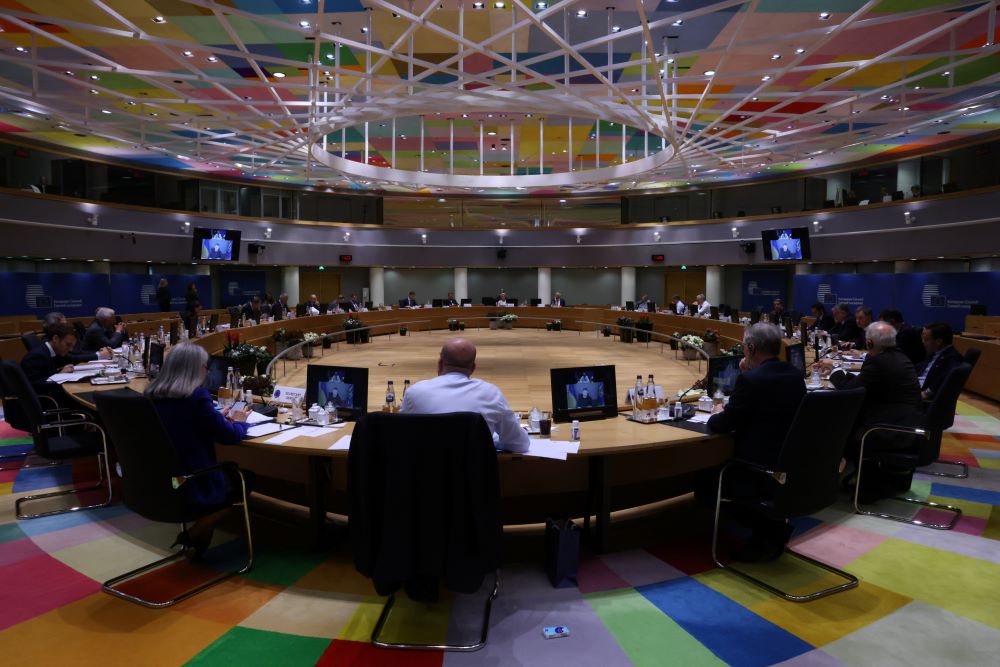
By Dr Graham Timmins, Reader in International Politics
Reader in International Politics, University of Birmingham
The European Council met in Brussels yesterday for the biannual summit of EU leaders. The period since the last summit in June has witnessed Europe reeling from the shock of the new political reality following Russia’s invasion of Ukraine. What then are the key takeaways from the last six months regards the EU’s strategic thinking towards its eastern neighbours, and what future challenges does the EU face in 2023 as the first anniversary of the invasion approaches?
Entering a new phase in EU-Russia relations
Josep Borrell, the High Representative for Foreign Affairs and Security Policy, in October described the EU as a garden in which Europeans can protect themselves from the jungle in the outside world. Putting aside the clumsy choice of words, Borrell’s speech acknowledged the changed political circumstances in which the EU finds itself, particularly in regards to Russia. The EU subsequently produced its new approach to Russia in November which Borrell summarised in six objectives; to isolate Russia within the international community, hold the Russian leadership accountable for its actions, support the EU’s eastern neighbours in mitigating the impact of the invasion, work with NATO and other actors to defend an international rules-based order, develop European resilience around energy and other critical infrastructure, and support civil society including in Russia
A new sense of strategic engagement with the Western Balkans, Eastern Neighbourhood and Central Asia
Bosnia and Herzegovina was granted candidate status at yesterday’s summit and joins four other candidate states in the Western Balkans, and this follows the granting of candidate status to Moldova and Ukraine in June with Georgia likely to follow in the near future. At the EU-Western Balkans summit in Tirana, the EU unequivocally reaffirmed the EU’s commitment to a membership perspective for the states in the Western Balkans, and at the Eastern Partnership Foreign Ministers meeting, the link between the ‘bilateral track’ and enlargement process was acknowledged. The possibility of involving Central Asian states in the Eastern Partnership was also suggested, an idea which probably developed during Borrell’s trip to Uzbekistan for the EU-Central Asia Ministerial Conference.
The EU’s new approach to Russia and momentum in engagement with the eastern neighbours suggests the EU is coming to terms with its new geopolitical mission. But many of the traditional concerns around EU foreign policy remain.
The need for strategic leadership
The inaugural summit of the European Political Community in Prague in October was a French-backed attempt to reinvigorate political dialogue between the EU and its neighbours. But for the EU’s eastern neighbours in particular, it created an element of confusion and raised speculation that the EU’s commitment to an enlargement strategy could be diluted. And when more recently President Emmanuel Macron suggested Russia should be offered ‘security guarantees’, this statement exposed the coordination gap in French and German strategic thinking. In a recent essay, published in the US magazine Foreign Affairs, Chancellor Olaf Scholz, outlined the implications for the ‘Zeitenwende’ or turning point in German foreign and security policy and asserted the need for Europe to assume more responsibility for its own security. The Franco-German relationship has long been the driving force behind the European integration process, and strategic leadership is what the EU needs now more than ever.
The fragile nature of policy consensus
The speed at which the EU implemented its post-invasion sanctions package on Russia surprised most observers. Reaching agreement on an energy price cap and the latest sanctions package has proven more complicated. Moreover, Prime Minister of Hungary Viktor Orban’s threat to veto the financial assistance package to Ukraine unless concessions were achieved on the EU’s intention to withhold funds from Hungary, reveal the fragile nature of maintaining policy consensus. The extension of qualified majority voting to foreign and security policy would require treaty change and would be hugely contentious, but this is a discussion which in time will become more necessary.
Dependence on the US to underwrite European security
Those in the EU advocating strategic autonomy will be concerned that the US has been the largest provider of weapons and financial support to Ukraine in 2022. Whether this remains true will depend on developments in US politics and outcome of the presidential elections in 2024. The EU and NATO are finalising a joint statement which will reaffirm their condemnation of Russia’s invasion and commitment to supporting Ukraine, but EU leaders may find the provision of future US support is contingent on the European contribution.
*
Sweden takes on the Council Presidency in January and Prime Minister Ulf Kristersson this week announced the primary tasks to be ensuring European security, standing up for Ukraine and underscoring the EU’s geopolitical significance. If these tasks are to be achieved, the EU will need to demonstrate resolve in confronting Russia, credibility in offering its eastern neighbours a European destiny, coherence in communicating the EU agenda to the outside world, determination in maintaining internal unity on Russia and vision in its engagement with the US around support for Ukraine. Josep Borrell in 2020 suggested the EU needed to learn to speak the language of power. Developments in 2023 may indicate how fluent the EU has become.
- Find out more about Dr Graham Timmins or follow him on Twitter: @_GrahamTimmins
- Back to Social Sciences Birmingham
The views and opinions expressed in this article are those of the author and do not necessarily reflect the official policy or position of the University of Birmingham.
